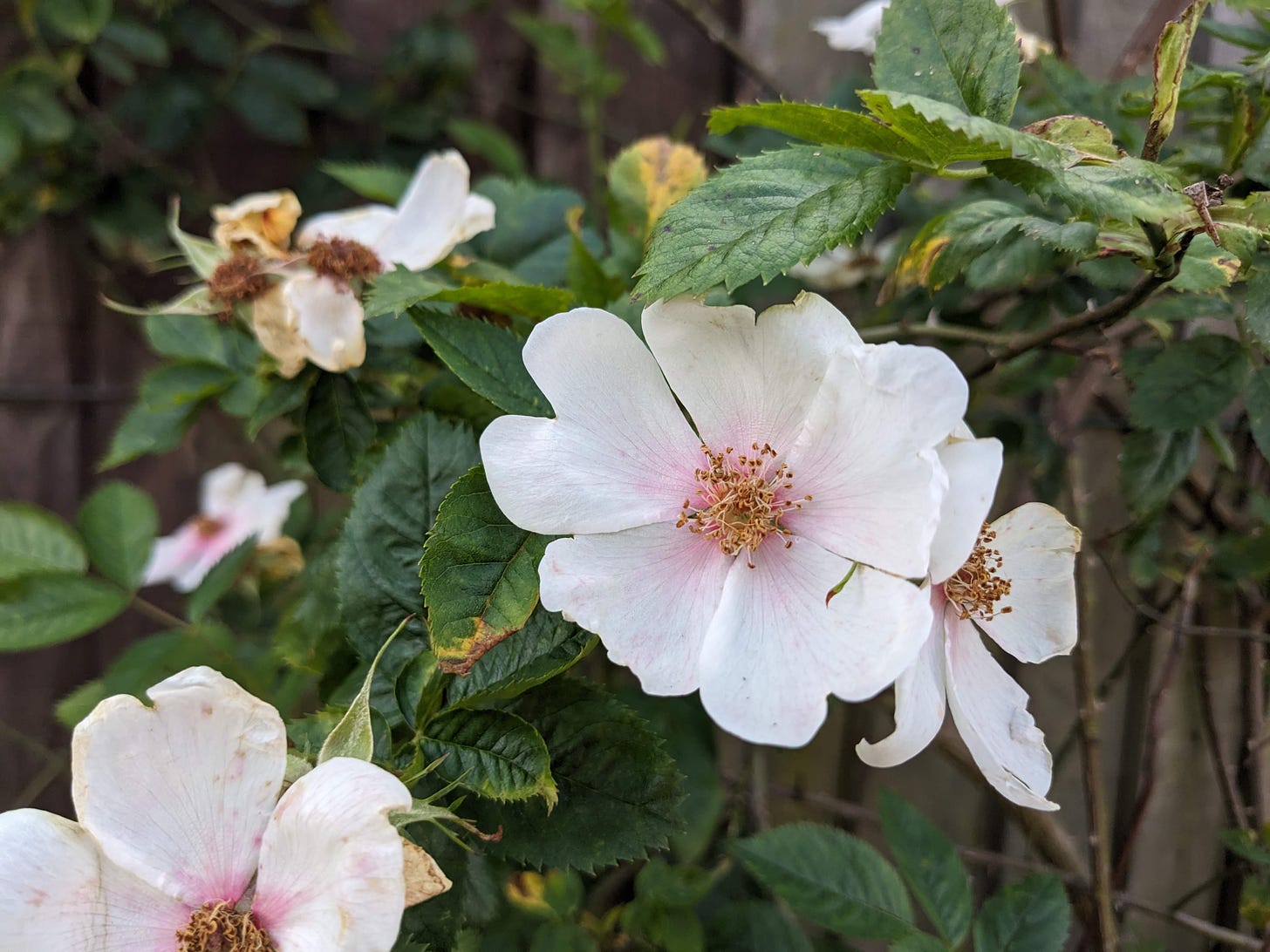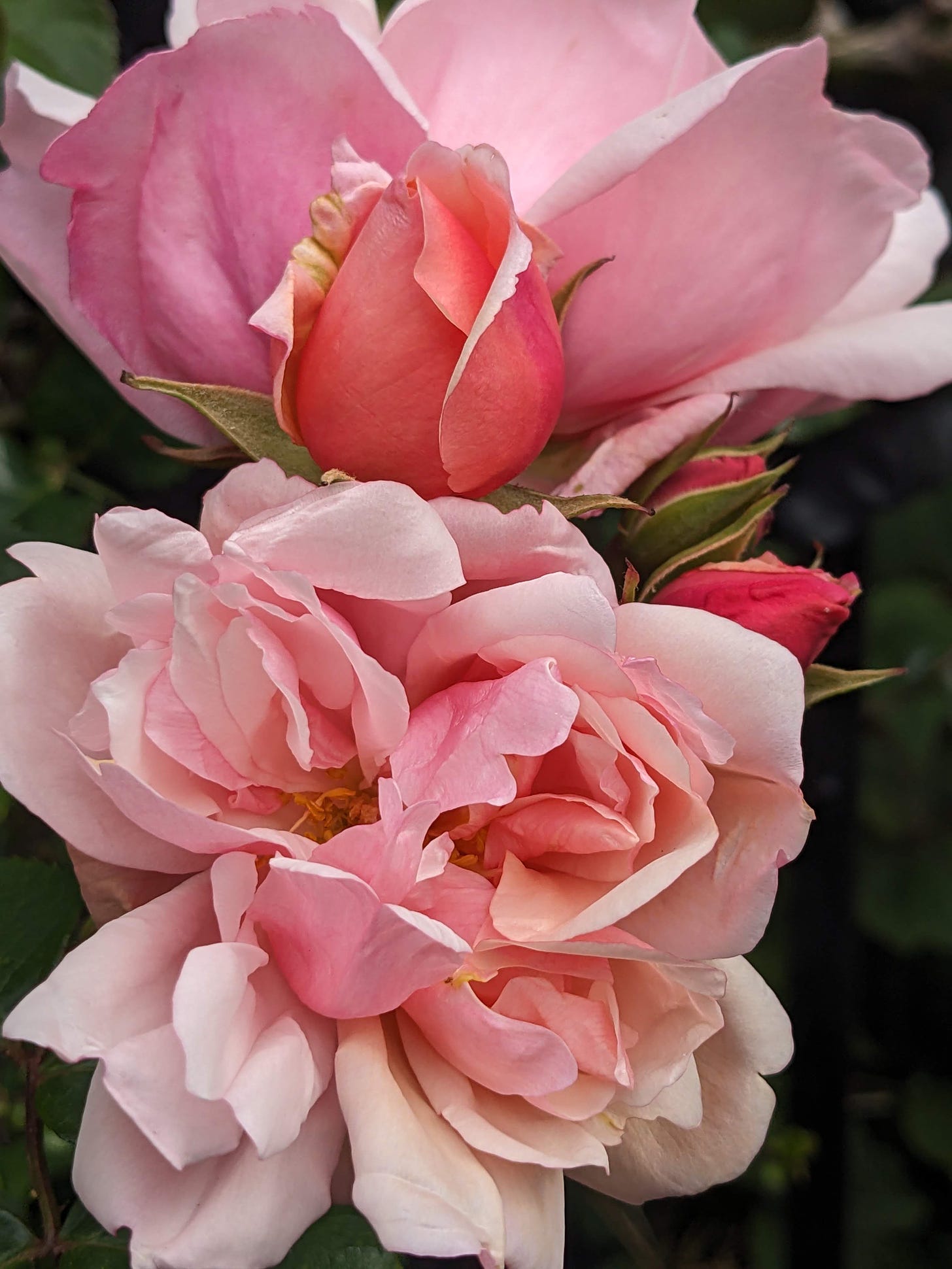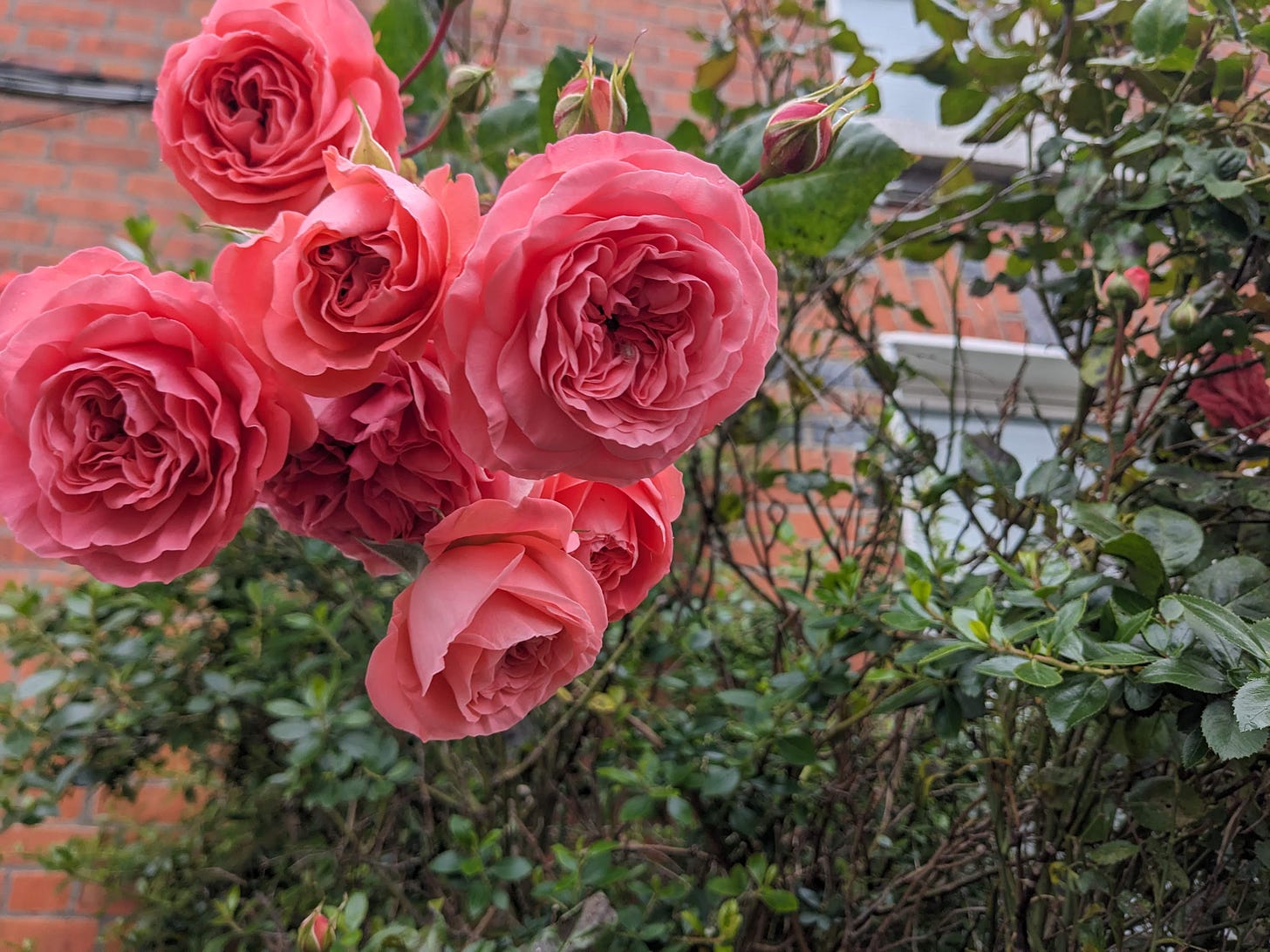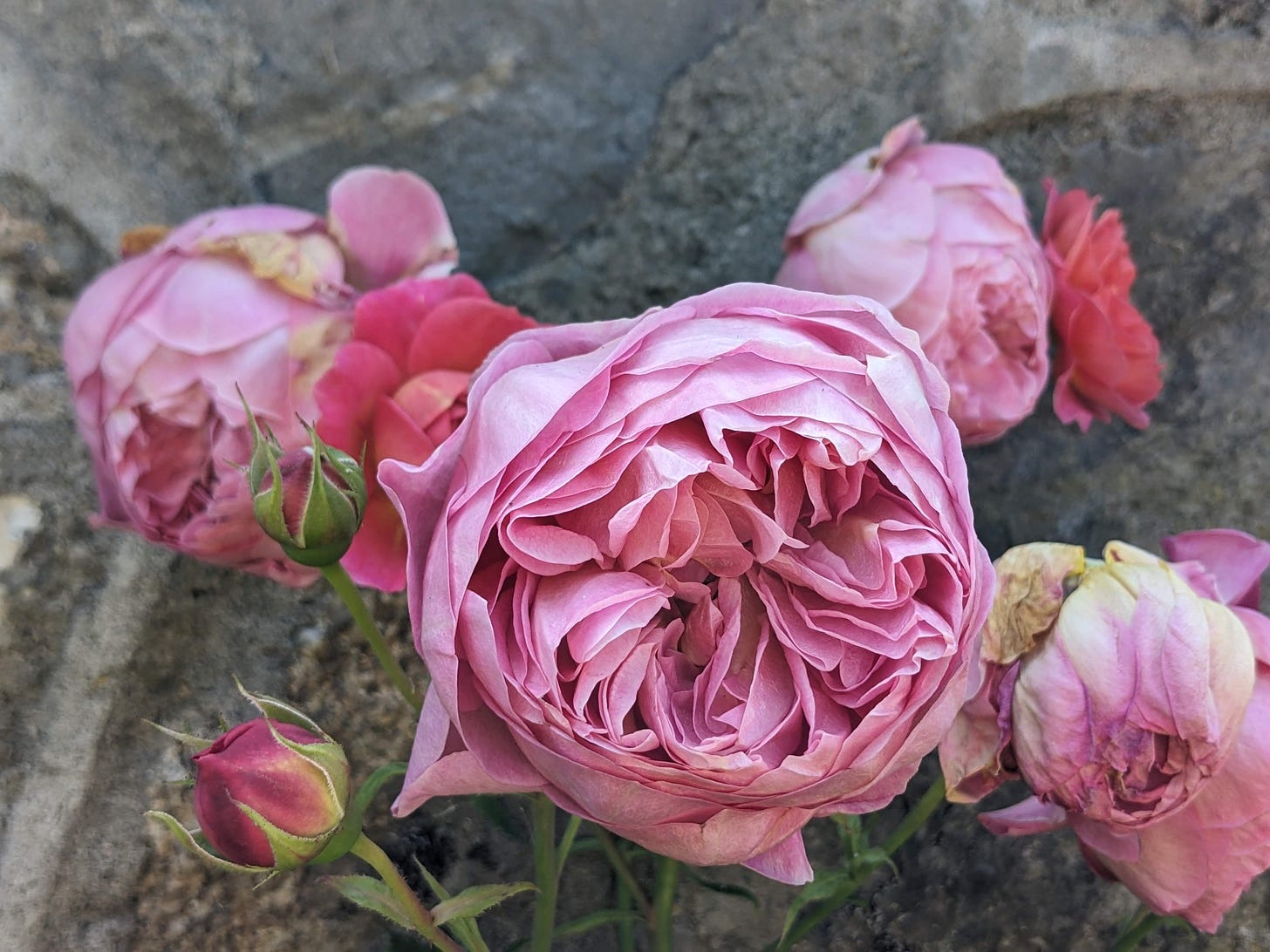First things first: would you like to read a long essay on the poetic line (and other lines, from which poems’ lines cannot so easily be disambiguated)? You would? Here it is. I worked a long time on this and so I am using it to teach myself how to post and repost links to the same piece of work until at least 1% of the people I know have clicked it.
A little excerpt: “I wanted to think about something I often said in my classes: that form was brought to us by our canons and our peers, but that it also came from the world; that we could go to the world to find it and to think about it, and that describing the forms the world gave us, sometimes by talking about them and sometimes by making poems in them, could teach us about formal meaning. In fact, I realized, what I was trying to say was that formal meaning-making in prosodic terms was not far at all from the kinds of formal meanings we read in the world every day.” Here’s the link one more time. Thanks to all at Annulet for making the lectures and this publication possible, and to Andrea Beltran for the nomination.
If you are interested in creative writing teaching methods, you might like to come to an online discussion by the winner, runner-up (uh, that’s me), and honorable mention winner of the Bechtel Prize, given yearly for essays that demonstrate innovation in writing pedagogy. July 17, 2 p.m. US Eastern, free. Register here.
Finally, some other things you may be interested in:
Jeff VanderMeer, “Water Lives Here”, a talk given at the Key West Literary Seminar about imagination, fiction, responsibility, landscape, belonging, water. Really, really good.
Low-Tech Magazine: “Why the Office Needs a Typewriter Revolution” (In addition to everything else, I find using a typewriter is pleasurable in a way using a laptop is not. I can also understand now why office workers had secretaries. Typing is hard work!).
The utopia of the roses is here.
I have to firmly brush away the easiest things to write—empty and embroidered and puffed up like dough in boiling oil, no interior. The internet has its genres like anywhere else does, and as a pattern-seeking being (as all humans are), I can perceive them. Easy to fall into the expected. Easy to follow the places thoughts have been before. Easy to do what I know with ease will be easily beautiful. And there is a genre, among internet writings in 2024, of easy beauty, which is to say overblown, breathless, a lot of sound and little significance. Oh. I’m talking about advertising.
A wren just landed on the rain gutter I can see from my window.
The thought occurs to me again that even to type these words onto a screen made of light requires more electricity, more mining, more assembly, more logistics, more transport, more infrastructure than my grandparents’ grandparents could probably have imagined. My life touches, my needs thread through, the lives of innumerable other people, and yet the internet produces, often, the sensation in me of sharp and cold isolation.
Out our front door, a riot of calendula. I cut the flowers back and see the buds on the lower branches. Give the bouquet to the downstairs neighbor, who gave us a frangipane cake last week. She tells me that the calendula I took the seeds from, around the corner from our house, grew from seed she sowed on her last walks while pregnant with her daughter. We didn’t even know one another when she sowed those flowers, and now their descendants grow in the front garden of the house we share.
In the encampment, the student from my poetry class cried as they described what it felt like to win the students’ demands but (and) to lose the encampment. The beauty of being there, together, every day, making decisions about how to be together, every day. Yes, I said, it’s a real loss. You are allowed to grieve it. You all made something with real beauty too. The encampment was dismantled by the students who built it, and around them the hydrangeas filled the air with their massive cloud-shaped flowers in the colors of electric rain.
That thing where you are reading something, and it moves you, and then you realize you are being sold something, and that the moves you that happened inside of you is the way you’re being sold whatever it is. It happens in the writing, too, subtly: I have to hold the reins of myself with care to feel the pull toward a way of writing that I know could seduce, with nothing behind it, or that would smooth my thinking into the grain of commerce that places like this one (this walled garden app, this tech-bro-warping of the way we wrote to one another by letter and by blogspot!). But actually, my life and yours are not for sale. Thinking is free. Being together is free. Not for sale.
You know why I like the roses that overhang the iron fence? The roses in the public park? There’s no exchange required to smell them, touch them, see them, except that I give my human living time for the human living time of the ones who planted and tend them, and for the vegetable living time of the roses. A perfect scale.
This June I saw Yoko Ono’s work installed in a major museum and—as it always does—it moved me. The small typed cards moved me, the film of the scissors at the clothing moved me, the black sack my friend and I entered to walk around part of the gallery in moved me, the photograph of Ono through a window covered in sheets of paper moved me, the nails, the hammer, the film of bottoms, the apple on its pedestal: moved me. And I also thought about the modesty of her early work: its use of paper, trash (Morning Piece—one of my favorite things she made), language, vulnerability, ink, time—these materials that are so ordinary and so common. The museum worked hard to make sure the exhibition felt “worth” the exorbitant price of entry (£25), and I am very glad I saw it. But I did think about the difference between the insistent ordinariness, handmadeness, and smallness of Ono’s early work and those huge galleries it was displayed in that led us toward the newest work, much smoother, much more polished, and much more of a scale for such galleries.
At the kitchen table, the midsummer sunlight illuminates a bouquet of parsley until almost 11 p.m. now. We drink cold orzo with milk on the warmest days, which are not very warm, all things considered, on this island in the North Atlantic.
We all belong to the utopia of the roses. Though states may strip us, horribly, grievously, of the rights a state may grant, we know our obligations, which are unending, immense, joyous, and unlimited: we are obliged to one another, in concentric circles, forever: obliged to see levelly, to take responsibility, to share the work, to ensure a life that is more than bare, to prevent suffering, to keep one another safe, to love widely, to open the door of the family beyond the narrow confines of the picket fence, to reject the proposition that our lives, and what makes them liveable, could ever be for sale. Will we gather at the river? We will gather at every river. We will lay down our swords and shields. We will not stop insisting until the utopia of the roses is lasting and real.
Essays from 2023-24 are beginning to disappear from this space. Some will appear in Abundant Number, a series of booklets full of slow things. Abundant Number will have a first issue this summer. In AN.1, you will find a couple of walks from me as well as an album review by Matthew Houston, chapters from a novel by Steve Himmer, and a few other pieces of writing. There will be a classified section eventually!
Inside the first volume of Abundant Number, there will be a postcard that is also a text message. You can send it to a friend, a very delayed SMS. You’ll just need a stamp. Images and text by Andrea Blancas Beltran.
If you’d like to be notified when you can get ahold of a copy of Abundant Number or about subscribing, you can put some information here.
More news and more to read here in late July. I hope you’re well. I hope you’re safe and happy, that you’re free and able to do what makes you more alive. I hope that the occupation of Palestine, and the ongoing genocide there, will end. I hope there will be no more wars anywhere. I hope that people everywhere will have safety, and comfort, and companionship, and freedom from fear.
See you in a month. Thanks for reading!








